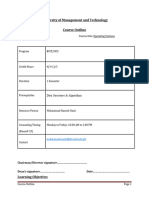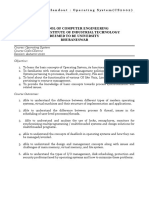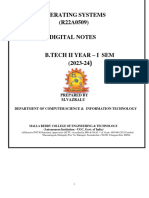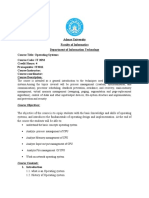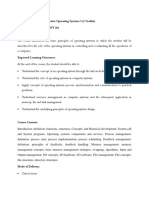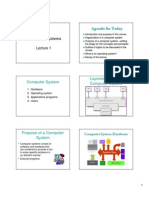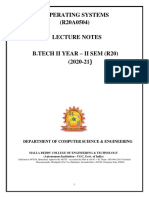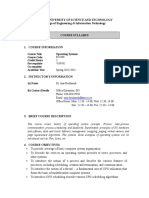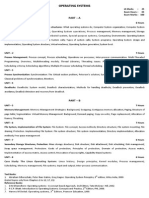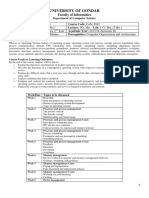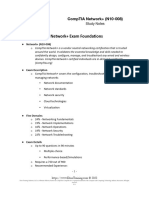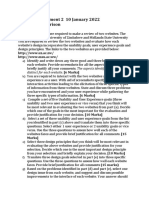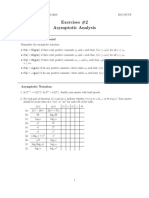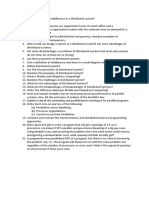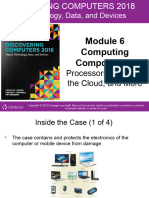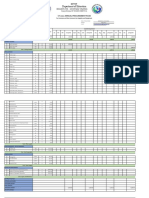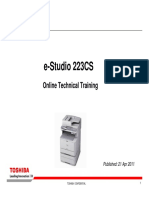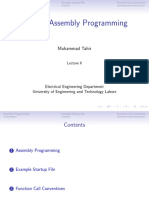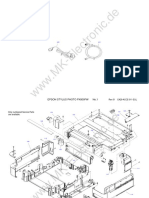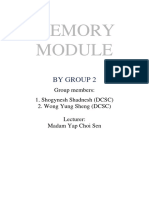0% found this document useful (0 votes)
62 views2 pagesCourse Outline OS
This document outlines an Operating Systems course with 120 notional hours over 12 credits. The course aims to provide an understanding of fundamental operating system design and current developments. Key topics include processes, memory management, file systems, disk and CPU scheduling, and concurrency. Assessment is through assignments, projects, tests, and a final exam. The course references two textbooks and uses G++, GNC compilers, and UNIX. It is divided into 11 weeks covering topics such as system calls, processes, synchronization, virtual memory, mass storage, and files.
Uploaded by
Marlon TugweteCopyright
© © All Rights Reserved
We take content rights seriously. If you suspect this is your content, claim it here.
Available Formats
Download as PDF, TXT or read online on Scribd
0% found this document useful (0 votes)
62 views2 pagesCourse Outline OS
This document outlines an Operating Systems course with 120 notional hours over 12 credits. The course aims to provide an understanding of fundamental operating system design and current developments. Key topics include processes, memory management, file systems, disk and CPU scheduling, and concurrency. Assessment is through assignments, projects, tests, and a final exam. The course references two textbooks and uses G++, GNC compilers, and UNIX. It is divided into 11 weeks covering topics such as system calls, processes, synchronization, virtual memory, mass storage, and files.
Uploaded by
Marlon TugweteCopyright
© © All Rights Reserved
We take content rights seriously. If you suspect this is your content, claim it here.
Available Formats
Download as PDF, TXT or read online on Scribd
/ 2





